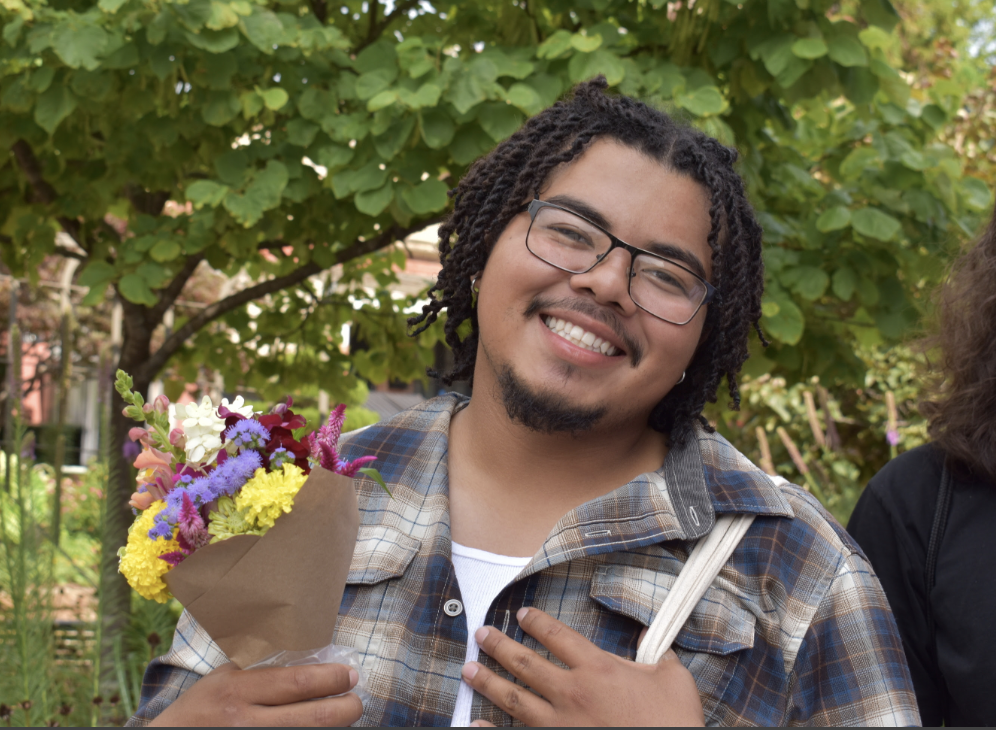
- Details
- By Levi Rickert
The Indigenous Food and Agriculture Initiative (IFAI) is proud to host the 11th Annual Native Youth in Agriculture Leadership Summit. This weeklong event gathers Native American, Alaska Native, and Native Hawaiian young adults (ages 18–24) from across Indian Country at the University of Arkansas in Fayetteville. During the summit, participants engage in focused learning tracks, collaborate on capstone projects, and learn directly from professionals in the food and agriculture industries.
Summit Origins
Since its inception, IFAI has prioritized the development of future Native leaders in agriculture. Based within the University of Arkansas School of Law—a land grant institution located on historically tribal lands—IFAI is committed to providing educational pathways that empower Native youth in the agricultural sector.
The first Youth in Agriculture Leadership Summit took place in 2014, created through a partnership between IFAI, the University of Arkansas School of Law’s LL.M. Program in Agricultural and Food Law, the Intertribal Agriculture Council (IAC), National FFA, and the Farm Credit Council. With funding support from the USDA’s Risk Management Agency (RMA), the inaugural summit welcomed 34 youth from around 20 Tribal Nations and Native Hawaiian communities.
“We recognized the opportunity and responsibility to create meaningful educational spaces because of our position within the university system,” said Erin Parker, senior managing attorney at IFAI. Parker was part of the team that helped launch the first summit, working under the guidance of IFAI co-founders Stacy Leeds and Janie Simms-Hipp. “IFAI is uniquely equipped to understand both the general challenges facing agricultural producers and the specific legal and structural barriers that Native producers face.”
That first group of 34 students set a high standard. Many have gone on to become farmers and ranchers, agricultural attorneys, policy leaders in tribal organizations, and scholars in agricultural sciences. “It’s been incredible to watch how their leadership has continued to grow,” Parker added.
Summit Growth and Impact
Over the past decade, the summit has evolved in response to participant feedback and the changing landscape of agriculture. While the number of participants has ranged from 34 to 134, it now averages around 40 attendees each year. The focus has also shifted from younger teens to college-age and early-career adults.
The curriculum is updated annually to stay relevant with emerging trends and innovations in agriculture. In recent years, IFAI has expanded its educational offerings by introducing specialized tracks—such as last summer’s new animal science track—to provide deeper learning experiences.
Despite changes in size and structure, the mission remains the same: to educate, empower, and connect the next generation of Native agricultural leaders.
This Year’s Summit: “Grow Your Potential”
The 2025 summit will be held July 10–17 and is being organized by IFAI’s new Youth Coordinator, Whitney Nelson.
“This year’s theme, ‘Grow Your Potential,’ reflects the importance of engaging Native youth in agricultural careers and leadership,” Nelson said. “I’m excited to carry forward this important tradition.”
A cornerstone of the summit has always been agricultural risk management education. This year’s programming will again center on the five risk areas defined by the USDA Risk Management Agency: legal, human, marketing, financial, and production risks.
Helping young producers understand and navigate these risks is vital to long-term success in agriculture. “We want our attendees to walk away not only informed but empowered—to see that these risks are manageable and that support and resources are available,” said Nelson.
More Stories Like This
Native News Weekly (August 25, 2024): D.C. BriefsNavajo Nation Mourns the Passing of Former Vice President Rex Lee Jim
Deb Haaland Earns Endorsement From Communications Workers of America Local 7076
University Soccer Standout Leads by Example
Two Native Americans Named to Democratic Congressional Campaign Committee's“Red to Blue” Program
Help us defend tribal sovereignty.
At Native News Online, our mission is rooted in telling the stories that strengthen sovereignty and uplift Indigenous voices — not just at year’s end, but every single day.
Because of your generosity last year, we were able to keep our reporters on the ground in tribal communities, at national gatherings and in the halls of Congress — covering the issues that matter most to Indian Country: sovereignty, culture, education, health and economic opportunity.
That support sustained us through a tough year in 2025. Now, as we look to the year ahead, we need your help right now to ensure warrior journalism remains strong — reporting that defends tribal sovereignty, amplifies Native truth, and holds power accountable.
 The stakes couldn't be higher. Your support keeps Native voices heard, Native stories told and Native sovereignty defended.
The stakes couldn't be higher. Your support keeps Native voices heard, Native stories told and Native sovereignty defended.
Stand with Warrior Journalism today.
Levi Rickert (Potawatomi), Editor & Publisher

